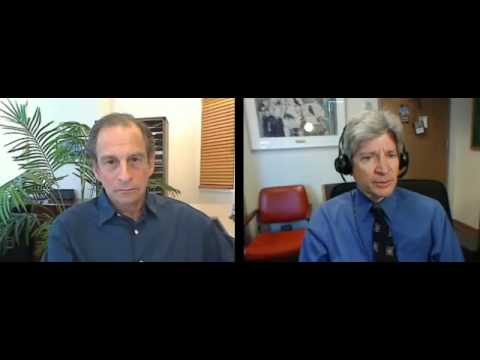Clinical Skills & Experience
The Next Big Step
What’s Ahead in Psychotherapy’s Fascination with Brain Science?Labeling behavior in fancy neurophysiological terms can make what we do sound more scientifically rigorous than the notoriously fuzzy language of... Read more
How Food Improves Mood
Bringing Nutrition into the Consulting RoomLearning even a little about nutrition and diet can greatly enhance therapists’ ability to help clients with mood problems. Read more
Rewriting the Story
Entering the World of the Abused ChildTherapists must offer abused children a different felt experience of who they are. Read more
Learning What a Depressed Client Needs
Elisha Goldstein on Individually Treating Cases of DepressionElisha Goldstein asks clients what they need in tough moments and explains why it helps them learn to trust themselves. Read more
Why We Focus on the Negative
Rick Hanson Explains the Evolution of the Negativity BiasMuch can be made of the power of positive thinking, but the real question is, why do we tend toward the negative in the first place? Read more
Working Through the Childhood Wounds that Feed Depression
Judith Beck on Understanding Emotions IntellectuallyJudith Beck talks about an intellectual technique that she uses when doing childhood work with adult clients suffering from depression. Read more
Letting Emotion Out and In
Susan Johnson on the Value of Using Emotion in Couples WorkSusan shares the latest research that backs up the central principle of EFT Read more
VIDEO: Desiring Change, but Clinging to the Familiar
David Burns on Turning Resistance into the Voice of ChangeDavid Burns discusses the key to reaching resistant clients—and it's not a new technique. Read more
Coaching with Feeling
Jeff Auerbach on the Key Differences Between Therapy and CoachingJeff Auerbach discusses the differences between therapy and coaching. Read more
Losing Focus as a Therapist
Mary Jo Barrett on Being Better Attuned to ClientsMary Jo Barrett talks about grounding during session to be in the moment. Read more
From Good Person to Ethical Professional
Mitch Handelsman on the Effectiveness of Ethics AcculturationMitch Handelsman explains integrating psychotherapy and ethics acculturation. Read more
To Self-Disclose, or Not to Self-Disclose?
Ken Hardy on Why Not Self-Disclosing Can Hurt TherapyPsychotherapy Networker Founder Rich Simon talks to Ken Hardy about how self-disclosure is part of the power structure in the therapy room. Read more
VIDEO: Ending Therapy: The Importance of Planned Termination
How to Ease the Transition Out of the Therapy RelationshipLisa Ferentz discusses how to effectively terminate therapy with a client. Read more
Creatures of Habit
Do We Really Choose How We Live Our Lives?When routines and habits become as lifeless as the manner in which one brushes one’s teeth, when the choreography of one’s existence resembles a... Read more
The 14 Habits of Highly Miserable People
How to Succeed at Self-SabotageMaking yourself profoundly unhappy takes tenacity and creativity. But the real art of it is to behave in ways that allow you to claim yourself to be an... Read more
Shaking & Dancing in Dharamsala
A Group of Tibetan Refugees Find their Inner GuidesHow do you help 200 teenagers who’ve had to flee their country find a path to peace in a new place? A psychiatrist who’s traveled across the world to help... Read more
How to Protect Yourself in the Ethical Gray Zone
Frederic Reamer on the Importance of DocumentationFrederic Reamer explains the importance of documentation and how it can save you from potential legal woes, even when you’re sure you’re in the right. Read more
Editor's Note: November/December 2013
First Comes the Hard WorkRomantically infatuated with the idea of psychological revelation—aka the therapeutic “breakthrough”—therapists too often ignore the fact that a... Read more
What's The Value Of A Diagnostic Category In The DSM?
Gary Greenberg on the Role of Economic Factors in the Shaping of the DSMGary Greenberg deconstructs the DSM and how it affects the field and your practice. Read more
Talking on the Edge
Assessing the Risk of SuicideMost clinicians already know the basic questions to ask about a client’s suicidality, but it’s important to go beyond a rote assessment to get a fuller... Read more
Evoking the Inner Artist: September/October 2013
How to Replace Pathology with CreativityWhen clients feel blocked, therapists can help them tap their inner artist and view feelings of vulnerability, doubt, and fear as part of a creative... Read more
Breathing To Balance The Stress Response System
Learn How To Use Breath Work To Alleviate AnxietyWatch Richard Brown and Patricia Gerbarg demonstrate a therapeutic breathing exercise used to treat anxiety in session. Read more
How Attachment Issues Undermine True Intimacy
Sue Johnson On Identifying And Healing The Wounds Of AttachmentSue Johnson shares how EFT helps couples get and stay closer. Read more
James Gordon shares a technique he uses with clients to help them get out of hopeless thought patterns. Read more
Editor's Note: July/August 2013
The In-Session Breakthrough FantasyAs a growing body of research shows, deep change doesn’t come when clients just talk about their problems: it results from the impact of an emotionally... Read more
Creating Adventure And Play In Therapy
How to Vitalize Your Therapeutic StyleTo have real therapeutic impact, we need to help clients learn to relate to themselves and the world in entirely new ways. Read more
Challenging The Narcissist
How to Find Pathways to EmpathyGiven their arrogance, condescension, and lack of empathy, narcissists are notoriously difficult clients. The key to working with them is being direct and... Read more
Yoga in the Therapy Room
Centering the Uncentered ClientRecently, therapists have begun to use simple, no-mat yoga practices to help clients whose minds are racing or fogged. Read more
From the Editor: May/June 2013
When the Tough Get TherapyThere are some clients who yell at us, manipulate us, go broodingly silent on us, have uncontrollable emotional breakdowns in session, disappear for weeks at a... Read more
Is Resistance Dead?
Or Have the Rumors Been Exaggerated?With all the recent developments in research, theory, and practice, we have more treatment options to choose from than ever before. Why then do so many... Read more




























